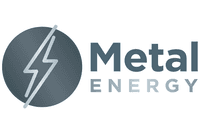BMI Research the Latest to Issue a Downgraded Nickel Price Forecast
BMI Research says it sees the nickel price averaging $10,250 per tonne in 2017. Goldman Sachs also recently downgraded its outlook.
The nickel price reached an 11-month low of $8,825 per tonne in May, and while it has since bounced back to trade at $8,975, RBC says that 40 percent of global nickel mines operate at a loss at that level.
Experts generally agree that the future does not look positive for the base metal, and BMI Research is the latest firm to lower its nickel price outlook. In a report released this week, BMI says it has revised its average 2017 nickel price forecast down to $10,250 from $10,500 on increasing production in Indonesia and declining demand in China.
Unfortunately, the picture does not look much better beyond 2017 — in fact, BMI expects the nickel price to trend downward and average just $9,000 by 2021.
Investment bank Goldman Sachs (NYSE:GS) also recently downgraded its nickel price forecast. Earlier in June, it dropped its three-, six- and 12-month nickel price forecasts to $9,000; previously they sat at $12,500, $11,000 and $11,000, respectively.
BMI Research’s nickel supply forecast
BMI sees global refined nickel production increasing from 1.91 million tonnes in 2016 to 1.93 million tonnes in 2017. Output should rise steadily over the next few years, reaching 2.06 million tonnes in 2021.
The main driver of that increase will be the easing of Indonesia’s export ban. BMI expects the country to have one of the fastest average growth rates for refined nickel output, with production rising 9.4 percent from 2017 to 2021. That said, China will “remain the key player on the supply-side of refined nickel production,” the firm says, and will also have a high average growth rate until 2021. The ousting of Regina Lopez from her Philippines government position could also “have a positive knock-on effect on refined production.”
Outside of Asia, Australia and Canada are forecast see increases in refined nickel production; however, Russian output is expected to decline marginally as it loses Chinese market share to Indonesia. The bulk of Canada’s ore and refined nickel production is expected to come from Vale (NYSE:VALE), although Glencore (LSE:GLEN) also has nickel operations in Canada.
The BMI report does not discuss the performance of nickel stocks, but investors interested in companies that are up year-to-date can click here to see our list.
BMI Research’s nickel demand forecast
Overall global refined nickel consumption is expected to fall by 0.1 percent from 2017 to 2021 on slowing growth in key Asian markets. Chinese demand for refined nickel is expected to decrease in 2017 from the previous year on rising demand for nickel pig iron as a substitute for refined nickel. However, Japan will increase its global market share as consumption rises from 11.3 percent in 2017 to 11.9 percent in 2021.
BMI predicts that most demand for nickel over the next five years will come from Taiwan at 7 percent and South Korea at 3.6 percent; while that is significant, those levels are nowhere near their consumption levels from 2012 to 2016. Demand in those countries will be driven by the automotive market.
Don’t forget to follow us @INN_Resource for real-time news updates!
Securities Disclosure: I, Melissa Shaw, hold no direct investment interest in any company mentioned in this article.


